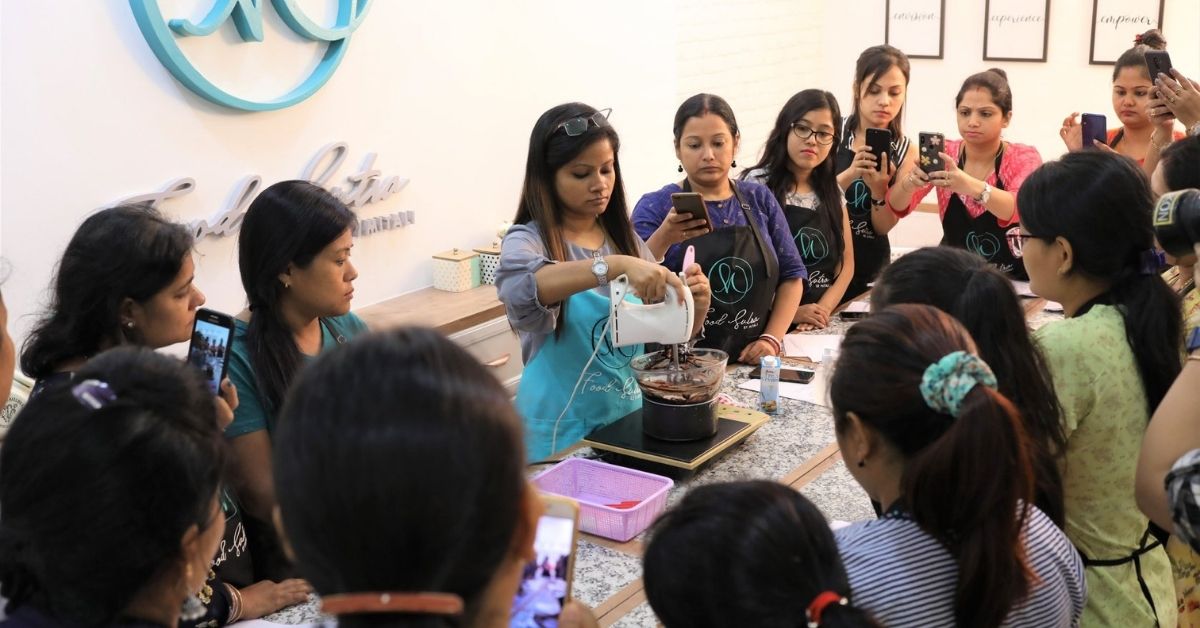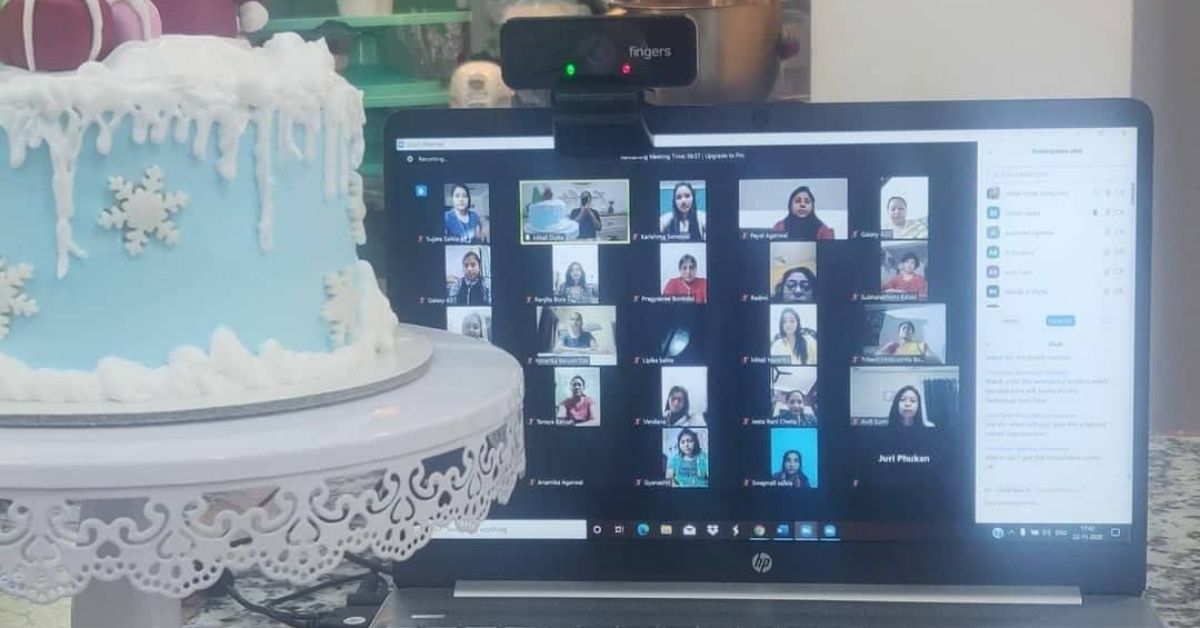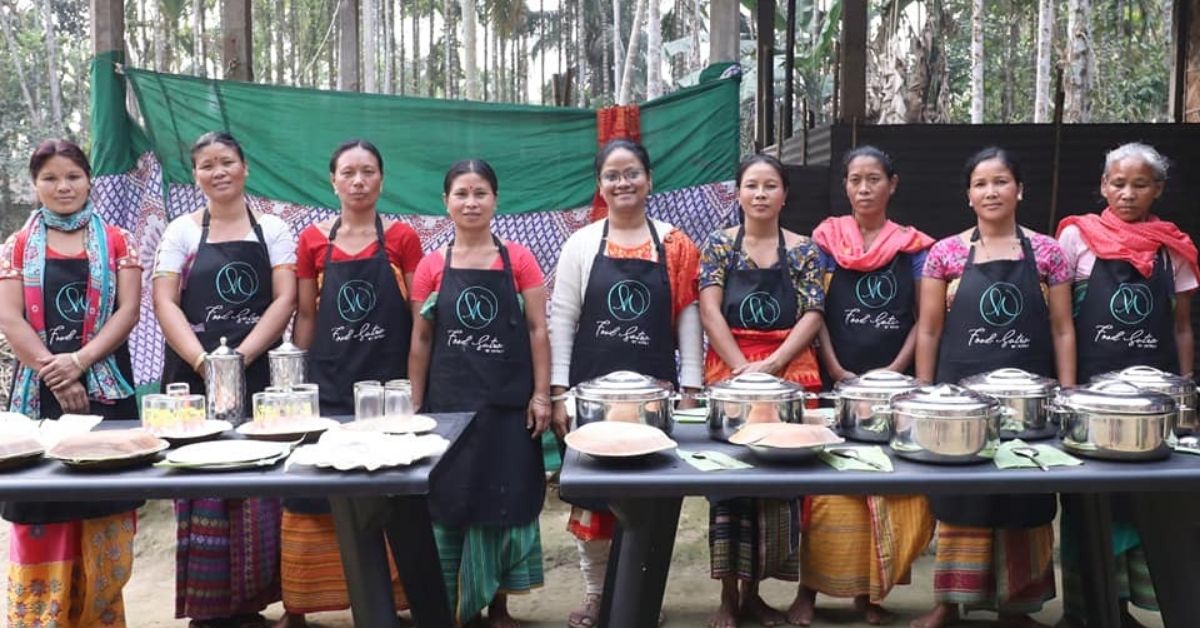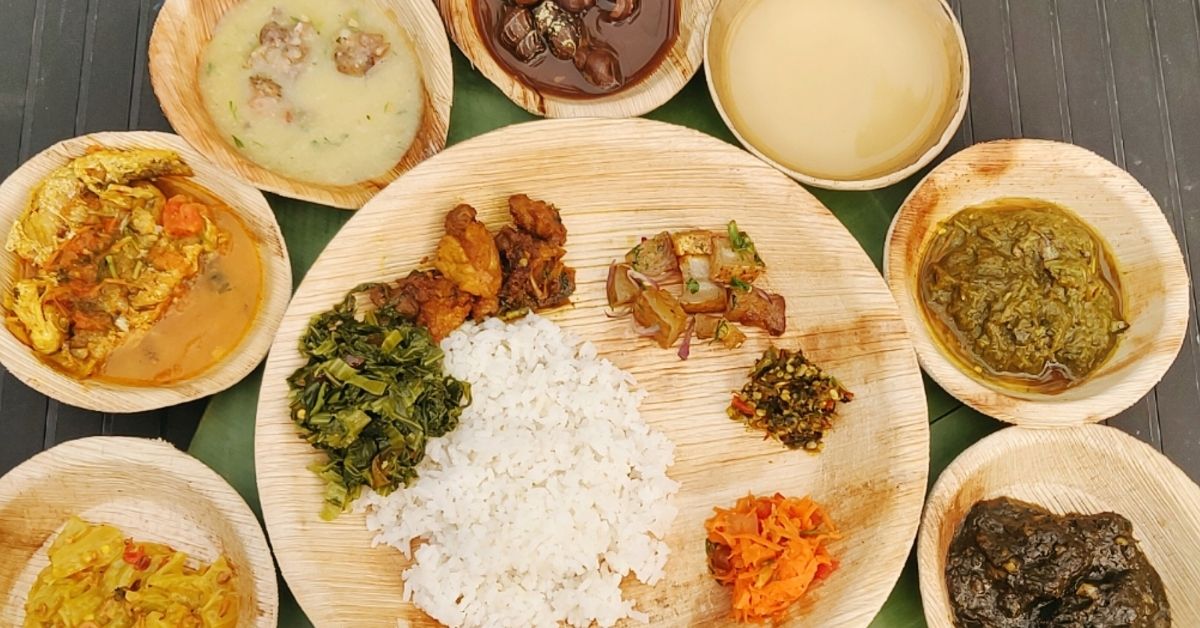When Mitali Gogoi Dutta, a resident of Guwahati, was asked by a friend if she could teach her the basics of baking, she had no idea this would catapult her into launching culinary classes one day. After all, the former air hostess, who also holds a degree in physiotherapy, had left her professional life behind in the early 2010s to become a full-time stay-at-home mom for her two daughters.
But when her friend made the request in 2015, Mitali agreed, and as one thing led to another, a few months later, her house no longer had the space to accommodate the ever-growing number of students who wished to learn the delicate art of cooking from her.
To keep up with the growing demand, she invested a sum of Rs 8,000 to rent a small space and purchase kitchen ingredients and vessels. Since then, her culinary venture, ‘Food Sutra’ by Mitali (FSM) has grown multifold — in fact, last year, the company recorded a monthly turnover of Rs 10,00,000.
But the 35-year-old’s culinary skills aren’t just helping her earn big profits; Mitali is also empowering tribal women living near Kaziranga and Manas National Park in Assam. Through her new initiative ‘FSM Food Trails’, she aims to boost food tourism in the region through local cuisine.
Within six years since she first started, Mitali has been able to create her name as a culinary entrepreneur in not just Guwahati, but across India. Between 2020 and 2021, she was able to teach 3,000 students online.
“It was a combination of strategies and careful planning that helped me reach where I am today,” Mitali tells The Better India.
She adds, “As far as my knowledge goes, I started teaching baking when no one else was doing it. Additionally, I train my students in a way that they can commercialise their own baking initiatives. Some of my students are now running profitable food ventures of their own.”
Baking to culinary tours

For the first two years, Mitali popularised her culinary training solely through word of mouth. In 2017, she became more active on social media.
“I was surprised to see the number of women who were eager to learn baking and start their own businesses. I wanted to help them learn how to go about it, so that they wouldn’t have to wait long before profits started coming in. I polished my existing skills by training under professional chefs to provide a wholesome course,” says Mitali.
The students are offered three courses, each with different difficulty levels. The first course is priced at Rs 1,000 and lasts for five days. In the last session, Miltali introduces the next course, which is more advanced. She follows the same method after the students finish the second course and pitches the third one, which lasts three months.
“All the courses are outcome-oriented with chapters such as digital marketing, accounting, packaging and more. I even provide certificates to advanced learners, which helps them establish credibility,” she adds.
Mitali says scaling her venture and investing money was a calculated risk. She had taken surveys among her students, friends and family to affirm that the demand for cakes and other baked products will never end.
The 3,000 students that have taken lessons from Mitali belong to different parts of Northeast India. Meanwhile, travellers who have experienced her Culinary Tours came from Sri Lanka, Netherlands, Belgium, Brazil and the United States.
Thanks to her community of over 35,000 followers across different social media platforms, Mitali has been able to gauge people’s attention on the cooking heritage of Assam in tribal regions.

It all began when she got the chance to feature on Chef Kunal Kapur’s Utsav Thalis of India series. Her followers suggested her name on social media when the showmakers started hunting for a chef in the Northeast.
The episode caught the attention of the World Wildlife Fund (WWF) in 2017, who approached her to curate an unforgettable culinary experience for domestic and international tourists in Kaziranga National Park. This would serve the twin purpose of introducing alternative livelihoods for poachers and popularising the local culture.
The forest department and WWF extended technical and financial help to Mitali, who in turn trained the locals in food presentation, guest hospitality, and safe ways of cooking.
“Some of the locals are amazing cooks, so I decided not to change, add or delete anything from their style of cooking or the ingredients. All they needed was a little bit of presentation work and capacity building. We prepared a special menu that would reflect the local culture and habits,” says Mitali.
For example, the tribals are very close to nature and prefer using sustainable ways, she notes. So the entire experience is kept plastic free and one which does not generate non-biodegradable waste.
“We have dishes like Pha-ok pen kimung (pork cooked in bamboo tubes), Go-ok pen Kemung (chicken cooked in bamboo tubes) and Pha-ok pen hanserong (pork cooked in roselle leaves), that perfectly embody the traditions of people of Karbi village. In ancient times, the community would mix pork-based dishes with medicinal herbs found in forests to boost immunity for farming. Instead of conventional spices and oil, they use sesame seed powder,” Mitali explains.

Close to 30 women and men from the tribal community have been hosting domestic and foreign tourists and earning upto Rs 2,000 per tourist, she adds.
Impressed by Mitali’s culinary tourism project, WWF asked her to replicate a similar model in Manas National Park, where the rhino population was almost extinct.
“The community suffered extensively during the Bodoland dispute for over 20 years. The villagers took to poaching to survive and close to hundred rhinos were killed. As part of the rhino conservation, forest authorities and WWF worked to turn poachers into protectors and this food experience is a part of that,” says Mitali, who trained 60 locals in Manas.

“Here again, we highlighted dishes that are prepared in unique ways, like pork meat, which is served with roselle and dry jute leaves. It is 10 times more bitter than usual pork. Another meat dish is prepared with rice flour. Initially we were hesitant to keep the rate at Rs 500 per dish, given that it is prepared within Rs 100 as all the ingredients are sourced locally. But tourists were more than willing to pay more. In fact, some even gave more than the decided rates after seeing the cooking process,” she adds.
Shantina Basumatary, a chef from Barangabari village who is part of Mitali’s initiative, told Tehelka, “Earlier, I used to depend on the forest as well as fishing for survival. Now, we are earning through these initiatives, which are of great help to my family of four members.”
Meanwhile, Mitali says that not only is there a stable livelihood for locals near the two national parks, but the mindset has also changed. For the first time, they are realising the role a cuisine can play in conserving a region’s heritage.
From giving rise to at-home bakers in urban areas to empowering the rural folks, Mitali is leaving no stone unturned in putting Assam’s cuisine on the world map. In fact, she is a cohort of the Academy of Women Entrepreneurs under the US Consulate and ASEAN conference for mentorship to expand her reach globally.
On this International Women’s Day (March 8), she was felicitated by the Ministry of Skill Development and Entrepreneurship as a women entrepreneur driving impactful change.
You can reach Mitali here.
Edited by Divya Sethu
No comments:
Post a Comment